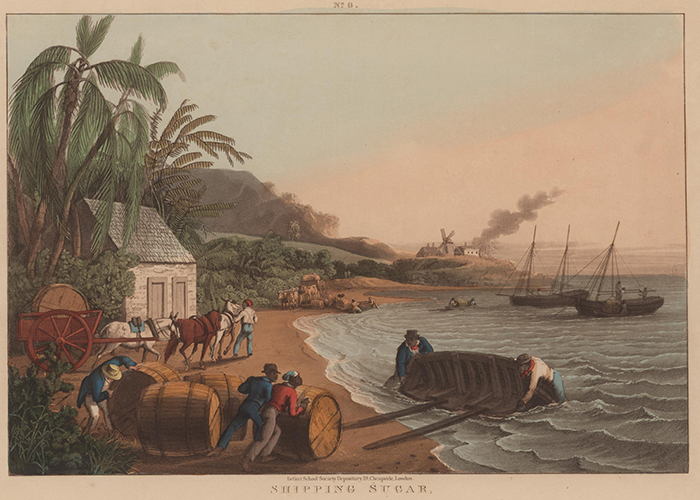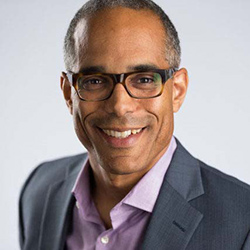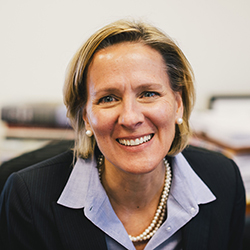W&M’s Omohundro Institute partners with pre-eminent digital humanities projects aimed at recovering histories of slavery and enslaved people

The Omohundro Institute at William & Mary has joined a multi-institutional partnership to document the lives of individuals who either were enslaved, owned slaves, were connected to the slave trade, and/or worked to emancipate individuals and families held in bondage.
Founded in 1943, the Omohundro Institute of Early American History & Culture (OI), is an independent research organization sponsored by William & Mary. It supports scholars and scholarship dedicated to the study of early America, broadly understood to mean all points in the Atlantic World between roughly 1450 and 1820.
The new research partnership will support Enslaved: Peoples of the Historical Slave Trade (Enslaved.org), an open-source online discovery tool that houses records related to nearly one million enslaved people and their descendants, as well as emancipation activists and enslavers.
 The project is a collaborative effort of Matrix: Center for Digital Humanities & Social Sciences at Michigan State University (MSU), the MSU Department of History, the College of Arts and Humanities at the University of Maryland (UMD), and scholars at multiple institutions of education, research and public exhibition. Since 2018, The Andrew W. Mellon Foundation has generously supported the initiative.
The project is a collaborative effort of Matrix: Center for Digital Humanities & Social Sciences at Michigan State University (MSU), the MSU Department of History, the College of Arts and Humanities at the University of Maryland (UMD), and scholars at multiple institutions of education, research and public exhibition. Since 2018, The Andrew W. Mellon Foundation has generously supported the initiative.
The OI will collaborate on initiatives made possible by a recently announced $1.4 million award to the project from the Mellon Foundation and another $349,000 award from the National Endowment for the Humanities.
Daryle Williams (Department of History, University of Maryland), who will become dean of the College of Humanities, Arts, and Social Sciences at the University of California, Riverside (UCR) on September 1, and who is a principal investigator for the project and editor of the Journal of Slavery and Data Preservation, approached the OI’s executive director Karin Wulf about collaborating on some of the new initiatives late last fall. The OI was a forerunner in slavery studies and actively produces as well as supports digital history projects.
“The Omohundro Institute’s long dedication to scholarship of the Atlantic world, including examination of the slave trade, as well as their commitment to digital projects, including the support of archives and projects seeking to give greater voice to those who were enslaved, made it easy to give Karin the call and to dream up the expanded partnership,” Williams said. “Everyone at Enslaved.org is excited to work with the OI to expand our collective understanding, our tools, and our voices of what they have rightly termed Vast Early America.”
Together, Williams and Wulf designed the Enslaved.org Summer Scholars Program, a workshop that will invite graduate students to learn more about digital humanities, project management, and inclusive scholarly communications. The program will debut in summer 2022, but Williams is already working with five undergraduate students who have been selected to participate in the Summer Research Opportunities Program (SROP), a pipeline initiative of the Big Ten Academic Alliance.
W&M’s Virginia Torczon, dean of A&S graduate studies and research, and Frederick Corney, chair of W&M’s Department of History, are excited to provide the opportunity to W&M students. Students from MSU, UMD, and UCR, where the co-principal investigators are on faculty, will make up the rest of the cohort.
 “We are honored to work with this extraordinary project and eager to encourage and learn from the scholars and scholarship associated with it as part of a developing partnership with the Enslaved.org team,” Wulf said.
“We are honored to work with this extraordinary project and eager to encourage and learn from the scholars and scholarship associated with it as part of a developing partnership with the Enslaved.org team,” Wulf said.
Additional collaborative efforts include a joint publication of the OI’s William and Mary Quarterly with the Journal of Slavery and Data Preservation, planned for early 2023.
Using digital humanities to recover lost legacies
The collaboration with the Enslaved.org project is the second partnership announced by the OI this spring. In early March, the OI formally joined a consortium of institutions dedicated to the preservation, stability, and future development of the Slave Voyages project, one of the most widely used online resources for anyone interested in slavery across the Atlantic world.
Slave Voyages has its origins in the 1960s, when historians began collecting data on slave ship voyages, and estimating the number of enslaved Africans to cross the Atlantic between the 16th through 19th centuries.
Developing a single, multisource dataset was a pipe dream until the 1990s, when David Eltis of Emory University and other researchers began to collaborate on centralizing their findings. The data migrated from punch cards, to a laptop computer, to a CD-ROM published in 1999, to a website that debuted at Emory in 2008.
From 2015-2018, SlaveVoyages.org was completely re-coded and modernized, and continues to publish new research and resources, from lesson plans for young students, to new features such as an interactive time lapse detailing the volume and destinations of voyages over the centuries. The site attracts more than 1,400 visitors a day, including educators, scholars, scientists, artists, genealogists and curators with national museums and history centers.
“Twenty years and four million viewers after its first appearance as a CD-ROM, the future of 48,000 slaving ventures recorded in Slave Voyages is finally secured for posterity," said Henry Louis Gates Jr., Alphonse Fletcher University Professor and director of Harvard’s Hutchins Center, a consortium member.
Other members of the consortium include Emory University, the Hutchins Center for African and African American Research at Harvard University, the National Museum of African American History and Culture, Rice University, and three campuses of the University of California (UC Santa Cruz, UC Irvine, and UC Berkeley) in a joint membership.
More than 50 researchers from Emory and institutions around the world have contributed to the project, which has received funding from the National Endowment for the Humanities, The Andrew W. Mellon Foundation, the Arts and Humanities Research Council of the UK, and Harvard’s Hutchins Center.
Wulf notes, “I tell my students every year that history is not a box that contains the truth; we don’t open the box to understand the past. Rather, every year, every day, we learn more, whether that means locating new information or changing our scope of inquiry and understanding through new methods and new perspectives. This is why projects such as Enslaved.org and slavevoyages.org are so crucial to the OI’s ongoing mission to support the scholars and scholarship of Vast Early America for the public good; they contribute vital new evidence, and new ways of understanding it about a critical feature of the early American past. We are honored and excited to enter into these partnerships.”














